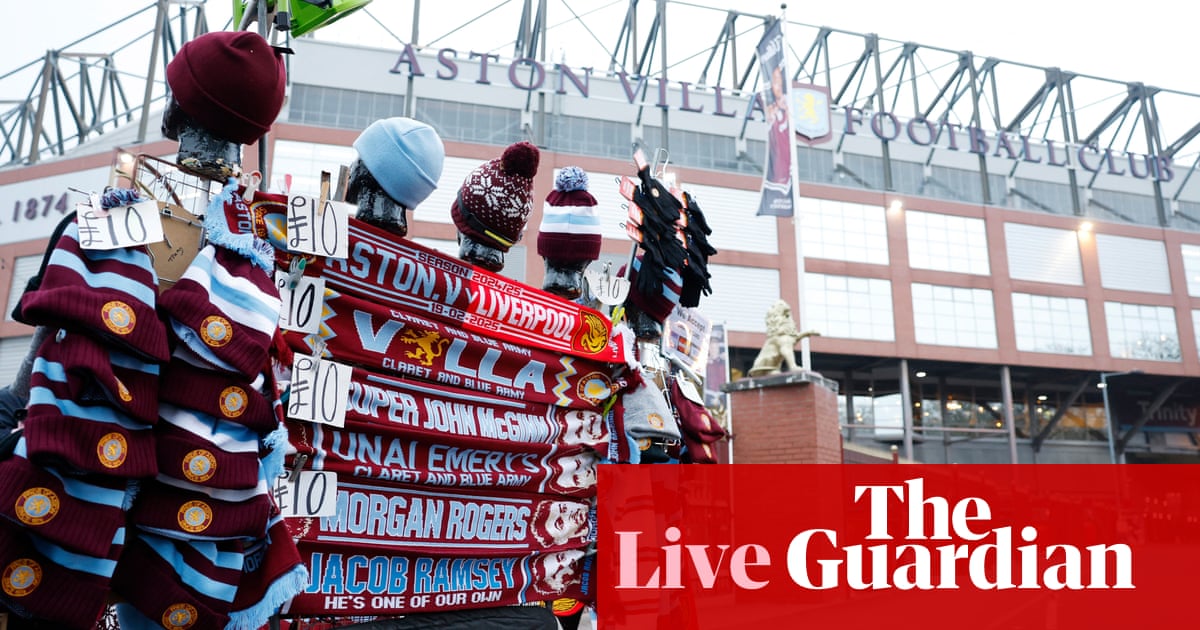
MPs should not accept any murky answers from Thames Water chair on potential sale | Nils Pratley
Published: 2025-05-12 05:48:42 | Views: 11
Hurrah, Sir Adrian Montague, the chair of Thames Water, is scheduled to make another of his rare public appearances. On Tuesday, he will be at the environment select committee, the forum where 18 months ago he gave a strong signal that the company’s financial crisis was even worse than feared.
The shareholders, in their standoff with the regulator over bills, wanted to know the business was “investable”, said Montague. Three months later those investors decided it wasn’t and refused to put in another penny. That forced the current refinancing contest that has seen KKR, the US private equity group, chosen as preferred bidder at the end of March.
The MPs should press Montague on three points. First, why KKR? The firm is a big grown-up investor in infrastructure projects around the world, so definitely qualifies as credible from a financial perspective, even if half the job at Thames is repairing a balance sheet wrecked originally by another set of financiers (Macquarie).
But what about the other half – actually running Europe’s biggest and most troubled utility? Amazingly, neither Thames nor KKR has described out loud how the business would be managed differently, or when the suffering customers could expect to see better service and less sludge in the rivers. Thames’s 2025-30 business plan was labelled “inadequate” by the regulator, Ofwat, in April. By when does KKR aspire to adequacy? Thames’s four-paragraph announcement in March merely offered a few minimal financial details, such as haircuts for senior bondholders, that were already known.
The customer angle also matters because of the second question: why did Thames go into the final diligence stage with only one interested party?
Ofwat is known to have wanted two bidders in the mix at the end to provide choice and competing visions, so why did the board of Thames think only one would do? An obvious alternative would have been CK Infrastructure, which owns 75% of Northumbrian Water, one of the better-performing water firms, versus KKR’s 25% and has held its stake for many more years.
There are possible explanations. Two bidders could have made the grinding process ever longer, or more expensive (this is a fee bonanza for City advisers already). Or perhaps one or both of the final two refused to go further on a non-exclusive basis.
But the board of Thames is ultimately in charge of the process. It could have set rules at the outset to require competition until the end. So could the government, the other unnaturally quiet observer to proceedings.
In the absence of explanations, you can’t blame the likes of economist Sir Dieter Helm for concluding that the A-class bondholders are attempting to sell the company to the bidder “most minded to do what is in their interests” – in other words, the one that will offer the smallest haircuts on them. A customer-first clean-up might impose bigger losses for bondholders.
Then there is a third question that has been overlooked since KKR was selected: what are the “further, and varying, regulatory support and accommodations” that Thames said earlier in March were being insisted upon in most of the would-be bidders (there were six at that stage). The best guess is they involve some form of deal, or understanding, that wraps up Thames’s potential outstanding fines.
after newsletter promotion
From a bidder’s point of view, it would make sense to pin down such liabilities. But shouldn’t we also be told what sort of regulatory compromises are being contemplated to produce the politically expedient outcome of keeping Thames out of special administration, AKA temporary nationalisation? Aren’t “regulatory accommodations” just a demand for special treatment?
The point is that control of a regulated company with £20bn of assets and 16 million customers looks likely to change hands with extraordinary little outside scrutiny. Ofwat’s wish for two bidders has been ignored. The Treasury, the Guardian reported, has ratcheted up the pressure to get a deal done by telling the environment department it would have to meet the budget-busting upfront costs of special administration, even if sums could be recouped later. And Thames’s public statements seem designed to shed as little light as possible.
Montague’s appearance may be the select committee’s last chance to achieve some basic transparency. Don’t accept murky answers.
Source link







